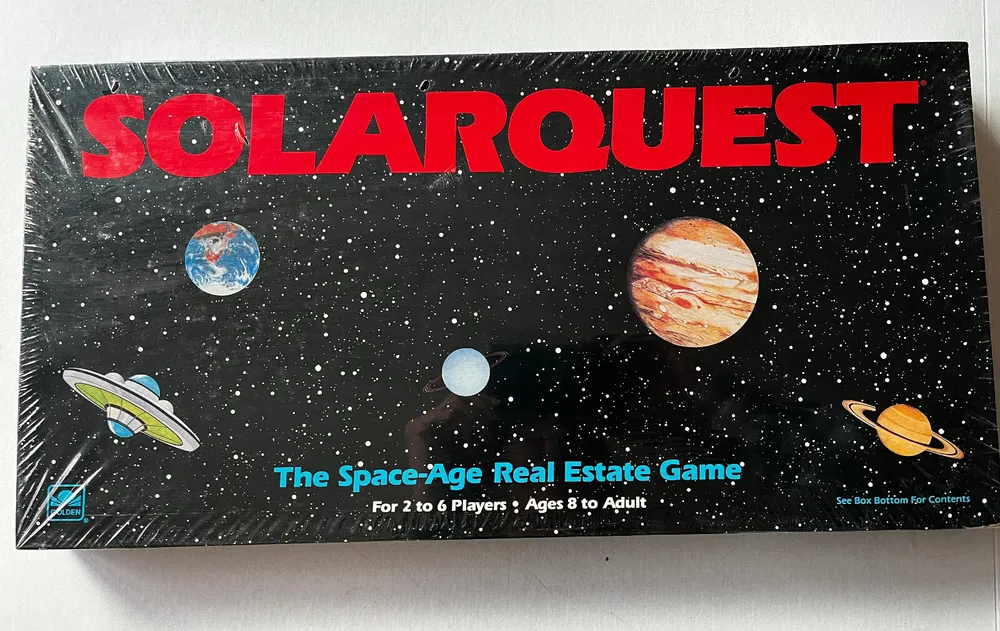Solarquest (1985)
Solarquest
“SolarQuest” is a space-age real estate trading board game published in 1985 and developed by Valen Brost, who conceived the idea in 1976. The game is patterned after Monopoly, but it replaces pewter tokens with rocket ships and hotels with metallic fuel stations. Players travel around the Sun acquiring monopolies of planets, moons, and man-made space structures, seeking to knock their opponents out of the game through bankruptcy, as well as optional laser blasts and dwindling fuel supplies.
Why is Solarquest Popular?
“SolarQuest” has attracted a renewed following in recent years due to its availability on eBay and other auction sites. The game combines strategy and luck, creating a challenging and unpredictable family game. It offers a unique and exciting space adventure experience for players, allowing them to explore and conquer the Solar System while learning about its various celestial bodies.
Game Components of Solarquest
How To Setup Solarquest
To set up Solarquest, players start by placing the game board in the middle of the playing area. Each player chooses a token and places it at the starting point. The deed cards, Red Shift cards, and other game components are shuffled and distributed according to the game’s instructions. Setup time typically takes between 5-15 minutes.
Gameplay Mechanics and Game Objective
Player Experience
Playing Solarquest is a complex yet engaging experience, similar to Monopoly but with the added twist of space travel and resource management. Players must navigate through the Solar System, manage fuel, and strategize their property acquisitions. The game requires simple mathematics, tactics, strategy, social skills, and negotiation. With a playing time of 1-3 hours, it can be a lengthy but rewarding experience for those who enjoy strategic board games.
Pros
Cons
Personal Thoughts on Solarquest
Solarquest is ideal for fans of strategic board games and those who enjoy a mix of economics, strategy, and space exploration. It is particularly suited for players who have experience with games like Monopoly, as it builds upon similar mechanics but adds a unique and challenging twist. However, due to its complexity and length, it may not be the best fit for casual or younger players. For those who appreciate the nostalgia and the educational value, Solarquest remains a classic and engaging game that can provide hours of entertainment and strategic challenge.
We are supported by our audience. When you purchase through links on our site, we may earn an affiliate commission, at no extra cost for you. Learn more.

